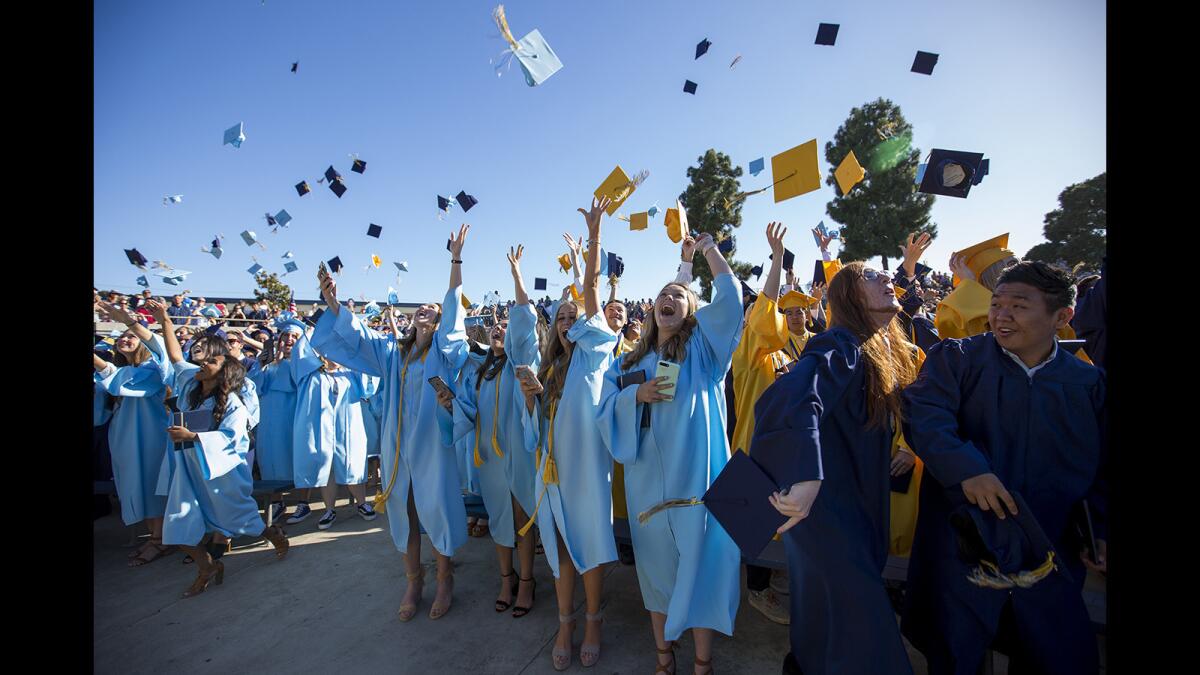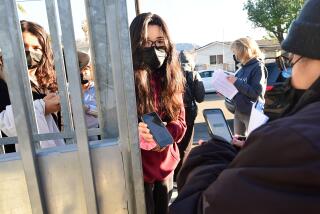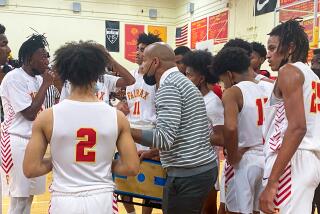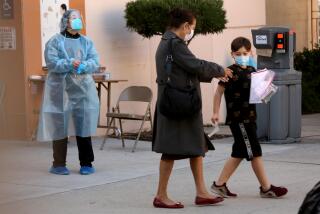More senior disappointment as coronavirus cancels high school graduation day

- Share via
California’s top education official said Tuesday what many anticipated but did not want to hear: Don’t expect traditional high school graduation ceremonies for the class of 2020.
“I’ve had many conversations with educators and parents, and we understand it’s difficult,” said Tony Thurmond, the state’s Supt. of Public Instruction. “We understand it’s disappointing for those of you who would hope to be in a graduation procession in May or June.”
To education officials across the state, the acknowledgment was no surprise, but students and parents have held out hope that somehow the coronavirus pandemic might be contained in time.
“We know that it is unlikely ... school campuses will reach a point where it will be safe for our students to return to campus before the end of the school year,” Thurmond said. “Quite frankly, we just don’t know when it will be safe enough for our shelter-in-place and our statewide stay-at-home order to be lifted.”
Not everyone has given up. Los Angeles school board member Jackie Goldberg told Thurmond by telephone last week that she still thought that schools might reopen. He responded that he would be pleased if that proved to be possible. In the meantime, Thurmond said, he knows of school districts planning “virtual” graduation ceremonies or traditional cap-and-gown events when it’s safe to gather again.
Activists from Students Deserve, a youth group with members at around 20 Los Angeles schools, stressed their desire to participate in a traditional graduation walk.
“We worked a valuable 12 years” to reach this point, said Mya Edwards, 17, a senior at Venice High School. She and other students said they understand that it may not be feasible to have such ceremonies in June, but they want assurances that the class of 2020 doesn’t get skipped over. They are asking L.A. schools Supt. Austin Beutner to join a Zoom call with students to update them and solicit feedback.
Parent Yadire De Loza said her son Oscar, a senior at Bell High School, has been anxious about missing out on graduation festivities and has heard conflicting messages about whether graduation could take place. Oscar plans to attend Cal State Northridge next fall.
In his comments Tuesday, Thurmond echoed Gov. Gavin Newsom, who has said repeatedly that he did not expect schools to reopen before the conclusion of the traditional school year. Both officials also have emphasized that schooling needs to continue by distance learning.
Thurmond pledged that the state education department would provide ongoing guidance as school systems attempt to keep students on track. He also made a pitch for donors to pledge a donation for the computers and internet access by sending an email to [email protected].
“Anyone can donate a device or make a contribution to donate a device,” he said.
The Los Angeles Unified School District hasn’t waited for money to arrive. Beutner used his emergency powers to spend about $100 million on internet hot spots and up to 200,000 computers for students who need them.
Both state and federal officials have urged districts to use their best judgment and forge ahead, rather than wait for permission — and leave students waiting for services. School systems across the state have followed this advice, with reservations about the financial impact and potential liability.
Officials at L.A. Unified, for example, have decided to turn away no one from their ad hoc meal program, which is carried out at 63 sites through walk-up and drive-through distribution. Turning away anyone — adult or child — in need of food would be unconscionable, said Beutner. All the same, the district has received no state or federal guarantee that it will be reimbursed for its public service. Under normal practice, the federal government reimburses districts only for meals provided to students.
In an interview, Thurmond said he has sought additional federal relief for L.A. Unified and other school systems that are providing meals. Beutner said he has moved on this front as well, talking with U.S. Sec. of Education Betsy DeVos and reaching out to Sec. of Agriculture Sonny Perdue, whose department manages the school lunch program.
Districts also have sought firm guidance on educating students with disabilities. Under normal circumstances, these students receive services through an Individualized Education Program, a plan that is developed for that student through a meeting of specialists and the child’s parent or guardian. These learning plans never contemplated video distance learning.
The state’s Department of Education has compiled a list of “best practices,” for distance learning for educators. Yet that hasn’t eliminated concerns about the effectiveness of such learning, including for those with disabilities.
More to Read
Sign up for Essential California
The most important California stories and recommendations in your inbox every morning.
You may occasionally receive promotional content from the Los Angeles Times.













